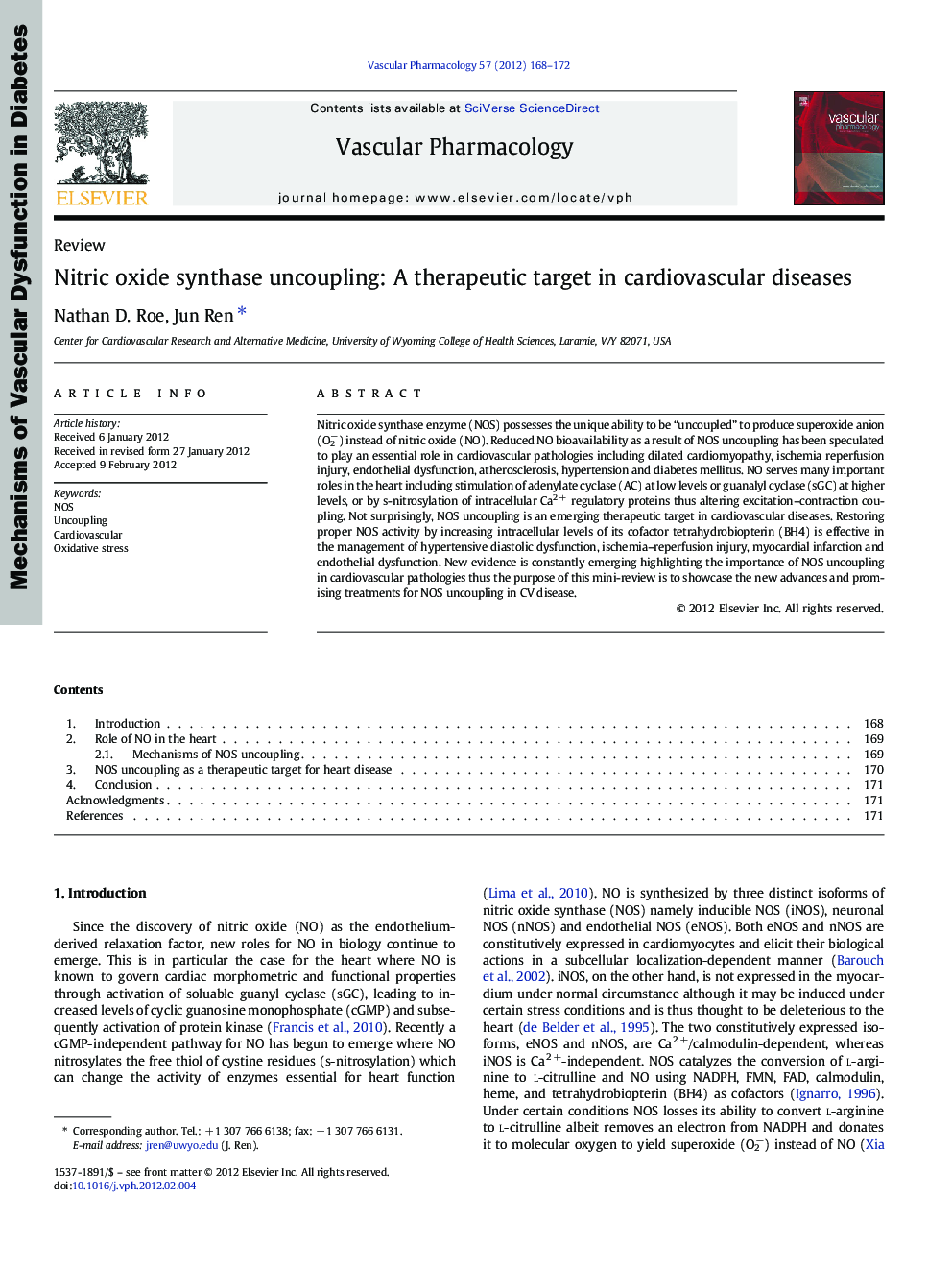| Article ID | Journal | Published Year | Pages | File Type |
|---|---|---|---|---|
| 2574337 | Vascular Pharmacology | 2012 | 5 Pages |
Nitric oxide synthase enzyme (NOS) possesses the unique ability to be “uncoupled” to produce superoxide anion (O2−) instead of nitric oxide (NO). Reduced NO bioavailability as a result of NOS uncoupling has been speculated to play an essential role in cardiovascular pathologies including dilated cardiomyopathy, ischemia reperfusion injury, endothelial dysfunction, atherosclerosis, hypertension and diabetes mellitus. NO serves many important roles in the heart including stimulation of adenylate cyclase (AC) at low levels or guanalyl cyclase (sGC) at higher levels, or by s-nitrosylation of intracellular Ca2 + regulatory proteins thus altering excitation–contraction coupling. Not surprisingly, NOS uncoupling is an emerging therapeutic target in cardiovascular diseases. Restoring proper NOS activity by increasing intracellular levels of its cofactor tetrahydrobiopterin (BH4) is effective in the management of hypertensive diastolic dysfunction, ischemia–reperfusion injury, myocardial infarction and endothelial dysfunction. New evidence is constantly emerging highlighting the importance of NOS uncoupling in cardiovascular pathologies thus the purpose of this mini-review is to showcase the new advances and promising treatments for NOS uncoupling in CV disease.
Graphical abstractFigure optionsDownload full-size imageDownload high-quality image (107 K)Download as PowerPoint slide
